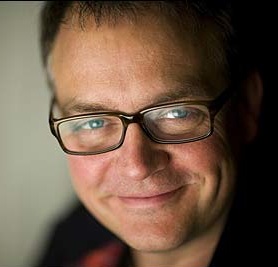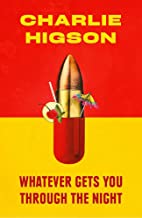 When I’m asked what sort of books I mostly read, I usually say crime fiction, but when confronted with a list of the most popular contemporary crime writers, I have to admit that I’ve not read a lot of them. I’ve been wondering why this is and I think it comes down to the fact that I like crime novels that are about crime rather than the people solving it. Police procedural and detective series seem to dominate the market these days (don’t get me started on domestic noir. I've been suckered into reading a few of them, which all somehow seem to pull off the trick of revolving around plot twists that are both predictable and utterly ridiculous).
When I’m asked what sort of books I mostly read, I usually say crime fiction, but when confronted with a list of the most popular contemporary crime writers, I have to admit that I’ve not read a lot of them. I’ve been wondering why this is and I think it comes down to the fact that I like crime novels that are about crime rather than the people solving it. Police procedural and detective series seem to dominate the market these days (don’t get me started on domestic noir. I've been suckered into reading a few of them, which all somehow seem to pull off the trick of revolving around plot twists that are both predictable and utterly ridiculous).
What interests me in a crime book is what goes on in the mind of a criminal. What makes them do what they do. And I've always been drawn towards characters who are pushed to the extreme. Characters that straddle that fine line between making a mistake and breaking the law. My adult crime books have mostly featured ordinary people who end up crossing that red line, usually with disastrous consequences.
What I find frustrating about traditional detective novels is that the perpetrators have to remain hidden until the end. Much as I enjoy reading, say, an Agatha Christie, for the puzzle value - the murders, and the murderers, rarely have any real depth. Christie only ever used a limited number of character types, which she recycled for each new book, and it's not until the final dénouement that we’re told which of them is the murderer, and why they did what they did. Consequently, there’s very little room to explore their motivations and their mentality. The crime writers I've always loved are those that deal with people driven by dark desires and twisted motivations. Characters who reason that crossing the red line is the only logical way out of their predicament. We can all understand a police detective and what motivates them, but understanding a murderer is harder, and, in my view, more interesting. Admit it, we all sometimes think about murdering people, but very few of us ever actually do it. I want to know what makes someone cross the line.
The great pulp crime writers who I always go back to - Jim Thompson, Charles Willeford, James M Cain, David Goodis etc. rarely wrote stories from the point of view of the cops (leaving aside Willeford’s Hoke Mosely books), what they were into was the robbers. The grifters. The alkies. The cheats and losers and killers. Their books were about people on the edge, breaking down, going off the rails, making mistakes. When the brilliant Jim Thompson (my favourite of them all) wrote about policemen, they were always the worst criminals in the book. The Killer Inside Me, about Sheriff Lou Ford, remains the best depiction of a sadistic psychopath in fiction. Not for Jim Thompson the flowery pantomime serial killers that have infested crime fiction and films ever since the success of Thomas Harris's Hannibal Lecter books. Crazy crime geniuses leaving ingenious clues to artfully conceived murders in a wholly unlikely manner, in a way that no real-life criminal has ever done. Jim Thompson wrote about people who were simply messed up, though they'd never admit it until it was too late. He wrote about men making worse and worse decisions but thinking they're always making the right decision.
The brilliant closing lines of his ‘Pop 1280’ sum it up – “I thought and I thought and then I thought some more, and finally I came to a decision. I decided I don't know no more what to do than if I was just another lousy human bein’!”
These days the behaviour of a classic pulp noir protagonist might be labelled as “cognitive distortion”, a form of mental gymnastics that helps wrongdoers justify their actions. The pulp writers would have simply labelled this behaviour as ‘f*cked up’.
Another writer who was good on cognitive distortion was Patricia Highsmith. She really understood the twisted, confused, self-justifying but utterly un-self-aware male psyche. Many of her stories, like classic early Coen Brothers films, feature men trying to fix a mistake by making an even bigger mistake, and, before you know it, they’re killing people. One of her early, less well known, books is tellingly called The Blunderer.
It's still one of my proudest achievements to have a quote from Highsmith on the cover of my first crime book, King Of The Ants (which was in many ways a homage to her). Never mind that “Fast, funny and full of action,” is quite obviously a quote written by someone who hasn't read the book but was doing a favour for my publisher, it's still there in black and white.
Elmore Leonard loved writing about these criminal types as well, small time hustlers who could go either way – towards crime or towards trying to fix crime. His classic books from the 80s were mostly about characters in this grey area. His heroes were often ex-crooks, and only very rarely policemen or detectives. They were usually as much on the fringes of society as his villains - and he loved his villains as much as he loved his heroes. There were no great mysteries to be solved, no great twists and turns, he just had fun immersing the reader in the world of dodgy criminality, and the dialogue he put into the mouths of his characters was second to none.
That's why I'll always find a maverick, loner, police detective who spends his time obsessing over jazz and sudoku less fun than a confused murderer who spends his time obsessing over jazz and sudoku. It’s why I’d rather watch Breaking Bad or the Fargo offshoot TV series than another police procedural. It’s why I preferred the brilliant early series of Line of Duty, where the likes of Lenny James and Keeley Hawes dug themselves deeper and deeper into dark holes until they well and truly crossed the red line, to the later series which tended to be more about shadowy unseen figures and a huge conspiracy, which meant that we lost touch with the actual wrongdoers.

Little, Brown (24 Feb. 2022) Hbk £14.99